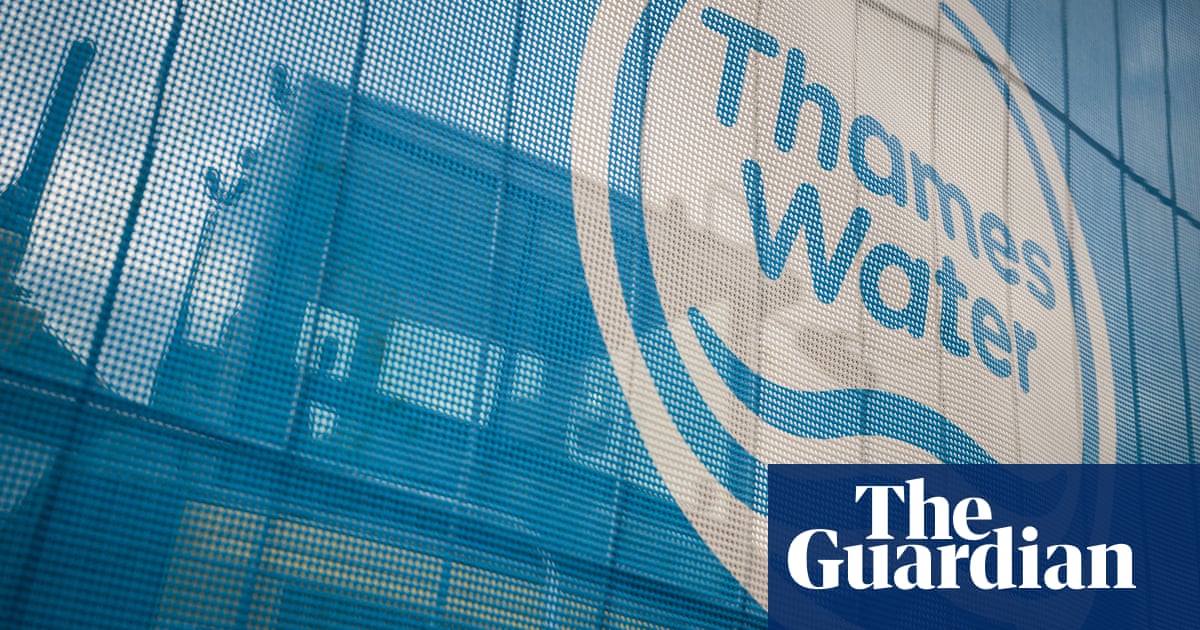The group of lenders to Kemble Water Finance include ING, Allied Irish Banks (AIB) and the Chinese state-owned Bank of China and Industrial and Commercial Bank of China (ICBC), the Financial Times and Sky News reported.
China’s role in UK infrastructure has been under the spotlight since telecoms groups were forced to strip out Huawei equipment from the UK network and Chinese backers of the Sizewell C nuclear power project were eased out amid security fears.
The announcement raised the prospect of Thames, which has 16 million customers, being temporarily nationalised if it slips into a government-handled administration. Rishi Sunak appears reluctant to pursue this route, although a government project team is examining contingency plans for Thames’s collapse.
Ahead of the meeting, the GMB national officer Gary Carter said he would “demand there are no cuts to work force numbers – or terms and conditions”. He said: “Any cost-cutting measures being considered by Thames will only be a sticking plaster and will not address the root cause of the company’s problems – a lack of investment by shareholders stretching back decades.”
Well, if the shareholders are going to do that, it’s going to have to ultimately come out of higher water fees. What is Thames Water charging today?
googles
It looks like there’s a small (~20 pound) fixed annual fee per household to pay for infrastructure. The variable cost appears to be 149.62 pence per cubic meter.
I wonder how that compares to over here in the States?
The exchange rate is about 1.26 USD = 1 GBP. A cubic meter of water is 264 gallons. So that’s about $0.00714/gal in variable costs.
googles
https://worldpopulationreview.com/state-rankings/water-prices-by-state
The water portion of a utility bill is typically smaller than electricity, gas, cable, and internet, with exceptions. Using about 100 gallons per person per day, an average U.S. family of four paid about $72.93 for water every month in 2019.
According to data, the least expensive cost of water in any state is in Wisconsin and Vermont, with average water costs at $18. West Virginia has the most expensive water costs of any state at $91 per month, followed by California at $77.
Okay, so 30 days in a month, 400 gallons, 12,000 gallons/month/household…so even discounting their small fixed fee, Thames Water customers are paying the equivalent of about $85/month, which is higher than 49 out of 50 US states, albeit not radically so.
A quick Google suggests the average Brit uses about 145 litres of water per day (various studies suggesting between 135 and 150), or 39 US gallons.
The grift is so unreal.
Hamburg Wasser made a profit of almost 100 million Euro in 2022 and since it’s owned by the state of Hamburg it didn’t shit that profit out to shareholders, but invested it into the infrastructure.
And the Tories are still reluctant to nationalise this vital service that has nothing to do in the “free” market.
This is the best summary I could come up with:
The Dutch bank ING and two Chinese state-owned lenders could play a crucial role in deciding the fate of beleaguered Thames Water, it has emerged.
The banks are expected to agree an extension on a £190m loan to the parent company of Britain’s biggest water supplier, which is due to be repaid at the end of this month.
Rishi Sunak appears reluctant to pursue this route, although a government project team is examining contingency plans for Thames’s collapse.
Ahead of the meeting, the GMB national officer Gary Carter said he would “demand there are no cuts to work force numbers – or terms and conditions”.
He said: “Any cost-cutting measures being considered by Thames will only be a sticking plaster and will not address the root cause of the company’s problems – a lack of investment by shareholders stretching back decades.”
Even assuming that lenders will agree to amend and extend the £190m loan due on 30 April 2024, this agreement would probably constitute a distressed debt exchange under our criteria.”
The original article contains 599 words, the summary contains 171 words. Saved 71%. I’m a bot and I’m open source!



